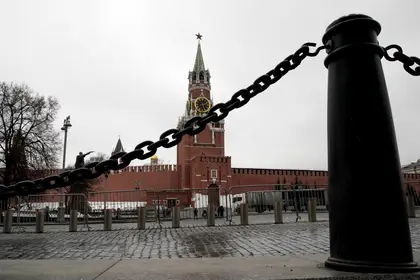UN Secretary-General Antonio Guterres on Friday called on “all parties” to “make every effort” to extend the agreement on Ukrainian grain exports, including facilitating shipments of Russian grain, his spokesman said.
The so-called Black Sea deal, signed in July by the UN, Ukraine, Russia and Turkey, has allowed more than 9 million tons of Ukrainian grain to be exported, easing the global food crisis caused by the war, though uncertainty about whether the agreement will last has already led to rising prices.
JOIN US ON TELEGRAM
Follow our coverage of the war on the @Kyivpost_official.
The confusion has come from Russian statements blasting their inability to export their own grain and fertilizer as part of a second agreement.
The initial agreement was set to last 120 days, with the option for renewal on November 19 “if no party objects,” Guterres’ spokesman Stephane Dujarric noted Friday.
“We urge all parties to make every effort to renew the Black Sea Grain Initiative and implement both agreements to their fullest, including the expedited removal of any remaining impediments to Russian grain and fertilizer export,” he said in a statement.
“We do not underestimate the challenges, but we know they can be overcome,” he said.
“Governments, shipping companies, grain and fertilizer traders and farmers all over the world are now looking for clarity on the future,” the statement added.

Kyiv Hit by Massive Drone Attack as Russian Strikes Target Multiple Ukrainian Cities
Moscow has complained about being unable to sell its fertilizers due to Western sanctions.
Russian ambassador to the UN Vassily Nebenzia told reporters Thursday that Russian exports must be allowed to go through before Moscow will commit to an extension of the deal.
“I’ve been saying for a long time already (that) the hurdles remain the same,” he said.
Earlier this week, US Secretary of State Antony Blinken predicted that a decision by Moscow to abandon the grain agreement would be met with “great anger” by countries around the world.
You can also highlight the text and press Ctrl + Enter






